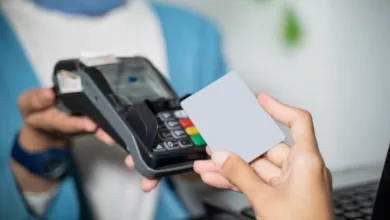How Having a Negative Balance on Your Credit Card Affects Your Credit Score

Paying your credit card bill monthly is important, but what happens if you can’t? Would your credit score be affected? Do you have to pay interest on that balance? What if you don’t know about the purchase until later, and your statement arrives in the mail? Many questions relate to how having a negative credit card balance affects your credit score. Read on to learn more about how it works and what you can do to protect yourself in the future.
The Basics
When you have a negative balance on your credit card, you owe more money to your credit card issuer than the credit limit allows. This can happen for various reasons, but usually, it’s because you’ve made charges exceeding your credit limit.
Seven Things You Can Do to Keep Your Score in Check
1. Make sure you never miss a payment and pay more than the minimum due each month.
2. Watch your credit utilization ratio and the percentage of your available credit used.
3. Pay off high-interest debt first because the interest charges will lower your score.
4. Keep in mind there are different types of debt with different impacts on credit scores: revolving debt (credit cards) and installment loans (car loans).
5. If you have any old debts past the statute of limitations for collections, get them removed from your credit report by getting them validated or agreeing with the creditor.
6. Regularly check your credit reports for errors or fraudulent activity and dispute anything that does not belong.
7. Finally, don’t take out new lines of credit without thinking about how it might affect your score.
In summary, maintaining and managing your credit can help to ensure you have good credit when you need it most. You want to keep your balance low, so you can maintain a higher credit limit and avoid carrying monthly balances.
Don’t Take Out Loans With Bad Credit
You might be tempted to take out a high-interest rate loan if you have bad credit. But this is a bad idea for several reasons. First, you’ll pay more interest than you would if you had good credit.
Keep Balances Low
One factor that goes into your credit score is your credit utilization, or how much of your available credit you’re using. The professionals at SoFi state, “A good rule of thumb is to keep your balances below 30% of your credit limit.”
Use Less Than 30% of Available Limit
One factor that can affect your credit score is your credit utilization ratio. This is the amount of debt you have compared to the amount of credit available.
Maintain Good Payment History
Payment history is the most important factor in your credit score—making up 35% of your FICO® Score☉. That’s why it’s important to always make at least your minimum payment by the due date.
Fix Late Payments and New Accounts As Soon As Possible
Late payments and new accounts can harm your credit score. If you have late payments, try to negotiate with your creditors to have them removed. If you have new accounts, keep up with the payments.
Pay All Bills On Time Each Month
When trying to improve your credit score, one of the most important things you can do is pay all your bills on time each month. That includes paying your credit card balance in full and on time every month.
Avoid Opening Too Many Accounts
One factor that can negatively affect your credit score is opening too many accounts in a short period. This can be interpreted as financial instability and cause your score to drop.
Although you may be able to have a negative balance on your credit card without it affecting your credit score, it’s generally not a good idea to do so.











